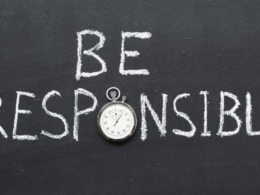Millions of people have a gambling problem. Whether it’s $2 lottery tickets or $200,000 stock market bets, here’s how to take control of the problem before it takes control of you.
For most, gambling is about a few hours of fun at the slots, a weekly card game with friends, or the occasional flyer in the stock market. But for some, there’s a dark side: the addiction that leads to personal and financial ruin.
The National Council on Problem Gambling reports about 1 percent of the U.S. adult population, or 2 million people, meet the criteria for pathological gambling: “increasing preoccupation with gambling, a need to bet more money more frequently, restlessness or irritability when attempting to stop, ‘chasing’ losses, and loss of control manifested by continuation of the gambling behavior in spite of mounting, serious, negative consequences.”
Another four to six million Americans are “problem gamblers” who display some of the symptoms pathological gamblers do.
Potential problems from gambling go beyond financial. Untreated, addiction can lead to legal problems, family and relationship issues, job loss, and an increased risk of suicide.
Eight signs you’ve got a gambling problem
1. You can’t stop
Just as an experienced poker player knows when to “hold ’em or fold ’em,” those who gamble for fun limit themselves and their bets. Compulsive gamblers struggle with both the time and money they’re spending. Betting takes over their life, and they find themselves constantly wagering. They try to quit, but can’t.
2. You gamble with money you can’t afford to lose
Problem gamblers don’t stop with “fun money” set aside for betting. They use money budgeted for bills, savings, or their kids’ education. Sometimes they squander not just their last penny but borrowed money as well.
The psychologist Stacy interviewed said one of his patients had borrowed money from sources so unsavory, he’d put his family’s safety at risk.
3. Your bets go beyond entertainment
Recreational gamblers play for fun and spend a few dollars to have a real time. Gambling addicts place bets for reasons other than entertainment, often trying to escape anxiety or other problems. Whatever issues you face, gambling isn’t the solution.
4. You attempt to recover losses by gambling more
Have you repeatedly tried to get back the money you’ve lost gambling by betting more? Problem gamblers may see more betting as the solution to financial loses rather than what it is – throwing good money after bad.
5. You gamble with more and more money
Like many addictions, pathological gambling can start small. But problem gamblers won’t be content keeping the stakes low or setting limits. They need to bet more and more to experience the rush.
6. You go to extremes to find money to gamble
Pathological gamblers don’t stop gambling when their bank account runs dry. Instead, they go to extremes to find more money. While this may stop with borrowing, some problem gamblers resort to theft, forgery, or other crimes to feed their habit.
7. You put gambling before more important things
Problem gamblers allow their practice to take priority over other parts of their lives. A gambling addict might skip watching her child’s soccer game or miss time at work to hit the casino. Careers are put on the back burner and relationships deteriorate at the expense their habit.
8. Gambling negatively affects your emotions
While gambling can be an exhilarating experience, addicts might experience emotions signaling a problem, including:
- Frustration or irritation when you’ve tried to quit and failed
- Feelings of remorse
- A decrease in ambition
- An urge to celebrate an unrelated event by gambling
In addition to these warning signs, test if you’re addicted to gambling on the Gamblers Anonymous website.
If you believe you’re addicted, there are steps to help you quit. Taking early action is the key to salvaging your job, relationships, and bank account.










